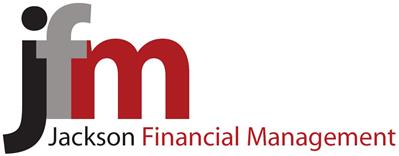If you want to ensure you’re getting the right amount of super and not paying more in tax than you have to, this list is for you.
I’m yet to hear anyone say they get a thrill from filling out forms or love reading long documents full of financial mumbo jumbo, but there’s likely to be a bit of that when you land your first full-time job.

To get you up to speed with some of the important money-related stuff, here are some important tips, which – good news – we’re going to give you in plain English.
What you need to know
1. Your bank account details and tax file number
You’ll need to give your bank account details to your employer if you want to get paid, so this’ll no doubt be high on your list of things to do.
On top of that, you’ll need to provide your tax file number as well, because if you don’t, you may end up paying a lot more tax on the income you earn1.
If you need a tax file number, contact the Australian Taxation Office (ATO) about applying for one.
2. Whether you can choose your super fund
Super is money set aside during your working life to support you in retirement.
You’ll generally be able to choose your own super fund but check with your employer or the ATO. If you can choose, you’ll typically have a choice between your employer’s fund or a fund you select.
There are things you’ll want to consider though, such as what fees you might pay, how the fund performs and your investment preferences, which could see you earn more or less money.
In addition, super funds generally offer a few types of insurance cover as well, which you could pay for using your super money, so it’s worth looking into whether this is something you want.
3. What tax you’re going to pay on the income you earn
You mightn’t be pleased, but you’ll have to pay income tax on every dollar over $18,200 you earn. And, on top of that, many taxpayers are also charged a Medicare levy of 2%.
The amount of tax you pay will depend on how much you earn. If you’re not sure how much you’ll fork out, the below table includes income tax rates for the 2018/19 financial year2.
|
Taxable income |
Tax they’ll pay on this income |
|
0 – $18,200 |
No tax |
|
$18,201 – $37,000 |
19c for each $1 over $18,200 |
|
$37,001 – $90,000 |
$3,572 plus 32.5c for each $1 over $37,000 |
|
$90,001 – $180,000 |
$20,797 plus 37c for each $1 over $90,000 |
|
$180,001 and over |
$54,097 plus 45c for each $1 over $180,000 |
Meanwhile, if you’re lucky enough to receive an annual bonus, you’ll also pay tax on this (I hear you, life isn’t fair).
4. What tax you can claim back when tax time rolls around
If you spend some of your own money on work-related expenses (uniforms, safety equipment, or education), there is some good news. At the end of the financial year, you may be able to claim some of this money back when you do your tax return (which yes, you have to do).
You will however need to have a record of these expenses, such as receipts, but in some instances if the total amount you’re claiming is $300 or less, you may not need receipts.
Meanwhile, if your expenses are for both work and personal use, you’ll only be able to claim a deduction for the work-related portion. Check out the myDeductions tool in the ATO app to save records throughout the year, so you don’t have a bag full of receipts to go through.
Meanwhile, if you’re lodging your own tax return, you have until 31 October each year to lodge it, or maybe longer if you use a tax agent.
5. What’s in your contract and what you’re entitled to
An employment contract is an agreement between you and your employer that sets out the terms and conditions of your employment. It’s a good idea to know what’s in your contract should questions ever arise around what you’re actually entitled to.
Regardless of whether you sign something or not, your contract cannot provide for less than the legal minimum, set out in Australia’s National Employment Standards, which covers things such as3:
-
Maximum weekly hours of work
-
Requests for flexible working arrangements
-
Parental leave and related entitlements
-
Annual leave
-
Personal/carer’s leave and compassionate leave
-
Community service leave
-
Long service leave
-
Public holidays
-
Notice of termination and redundancy pay.
While National Employment Standards apply to all employees covered by the national workplace relations system, only certain entitlements will apply to casual employees. For more information, check out the Australian Government Fair Work Ombudsman website.
6. How to read your payslip so you’re across potential errors
Payslips have to cover details of your pay for each pay period. Below is a list of what a pay slip typically includes:
-
Your before-tax pay (also known as gross pay)
-
Your after-tax or take-home pay (also known as net pay)
-
What amount of money you’ve paid in tax
-
The amount of super your employer has put into your super fund
-
HELP/HECS debt repayments (if you have an education loan).
Meanwhile, mistakes can happen, so if anything doesn’t look right, chat to your employer and if you’ve raised an issue you’re not satisfied with, you can also contact the Fair Work Ombudsman.
7. How much super is coming out of your pay package and if it’s correct
If you’re earning over $450 (before tax) a month, no less than 9.5% of your before-tax salary should generally be going into your super under the Superannuation Guarantee scheme.
If you’re under 18 and work a minimum of 30 hours per week, you may still be owed super. For this reason, it’s important you check your payslip and if something doesn’t look right, that you speak to your boss as soon as possible, or contact the ATO.
Another thing to note is if you do change jobs, this is when super accounts can start to multiply. It might not sound like a big deal, but multiple accounts can often mean multiple sets of fees, which means less money in your pocket, so you may want to ensure you only have one account, not many.
8. How to budget and save so you can get what you want in life
Budgeting may sound boring as, but jotting down into three categories – what money is coming in, what cash is required for the mandatory stuff and how much cash might be left over for your social life (or saving), could make a massive difference to what you do in life.
If you’re paying off debts, or on a more exciting note, want to buy a car or go on a holiday, getting a grip on your cash habits early on could see you have a lot more fun!
If you seek further assistance please contact us on Phone 02 9906 6566
Important information:This information is provided by AMP Life Limited. It is general information only and hasn’t taken your circumstances into account. It’s important to consider your particular circumstances and the relevant Product Disclosure Statement or Terms and Conditions, available by calling 13 30 30, before deciding what’s right for you. Read our Financial Services Guide for information about our services, including the fees and other benefits that AMP companies and their representatives may receive in relation to products and services provided to you. All information on this website is subject to change without notice. Although the information is from sources considered reliable, AMP does not guarantee that it is accurate or complete. You should not rely upon it and should seek professional advice before making any financial decision. Except where liability under any statute cannot be excluded, AMP does not accept any liability for any resulting loss or damage of the reader or any other person


